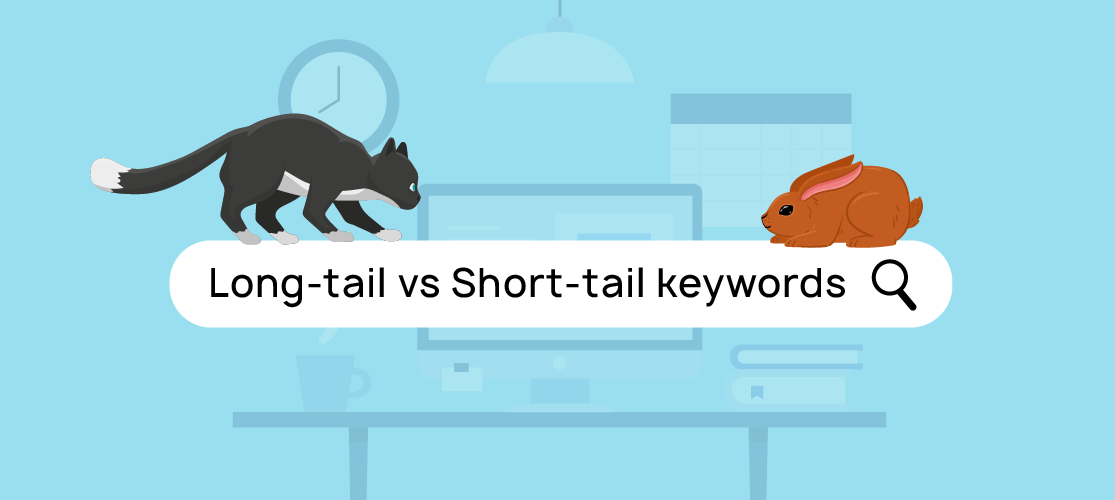When it comes to digital marketing and SEO, you won’t go a day without hearing the word ‘keyword’, particularly when it comes to writing content for your website. Keywords tie into a specific niche of digital marketing called On-Page SEO, which is all about how the content on your website affects your Google ranking. But that’s a story for another day!
Today, we’re going to focus on two specific types of keywords: short-tail keywords and long-tail keywords. Keywords with tails, sounds cute, right?! Well they’re actually a way of boosting the likelihood of your website appearing at the top of Google (every digital marketers number one dream) but when more than 28% of web users click on the top Google result, you can see why it’s so sought after!
But before we delve into these specific types of keywords, let’s first understand what a keyword is.
What are keywords?
In SEO, keywords (sometimes known as keyphrases) are words, strings of words, or phrases added to website content to improve their ranking for these terms in search engines such as Google. They help these search engines understand what that page is all about, so when someone searches for what you offer, Google goes ‘Oh, wait! These guys mentioned that on their page.’ and will show your website.
Let’s take the Milk & Tweed website as an example. Specifically the SEO page (it seems fitting). When we pop this page into our keyword research tool (more on this later!), you can see we’re ranking for terms like SEO bath and SEO agency bath. So a potential customer of ours who’s based in Bath may use this term to look for an agency like Milk & Tweed, and because we’ve used that keyword on our page, and Google recognises it’s there, we’re more likely to appear when they search ‘seo agency bath’ into their browser:
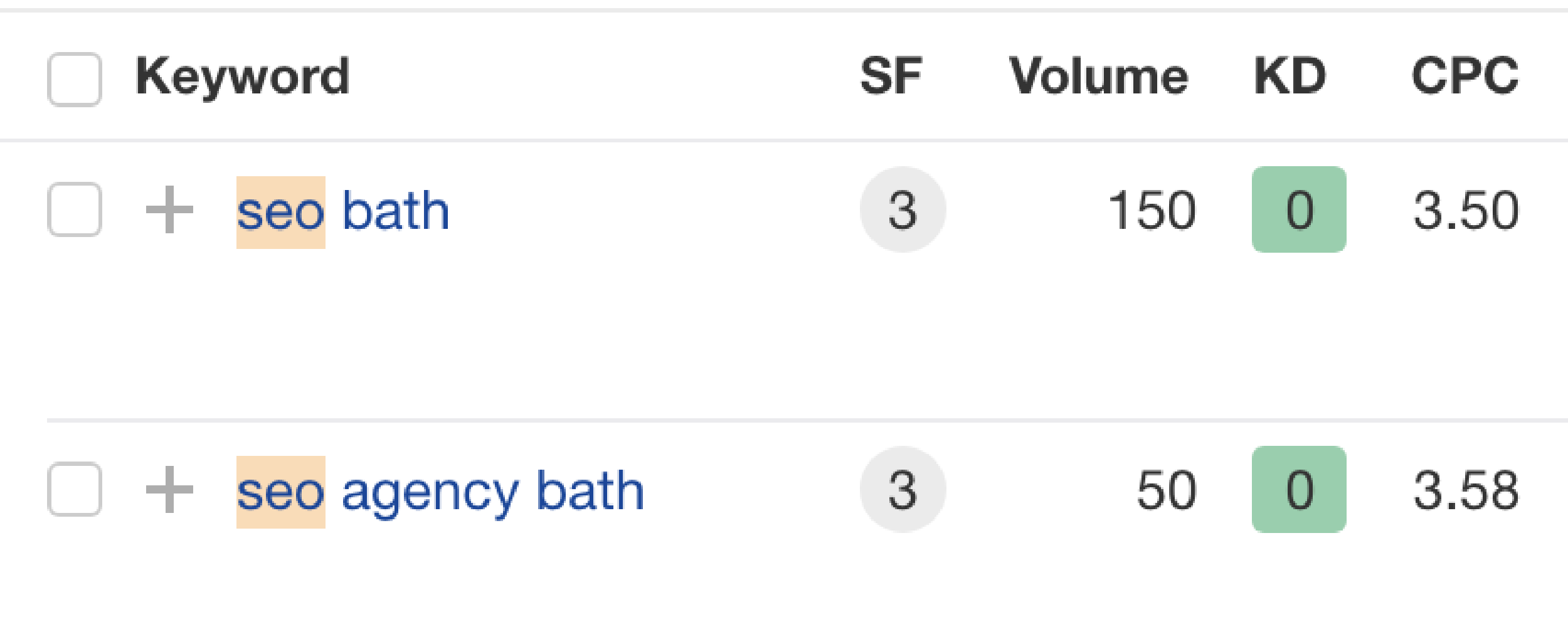
But you didn’t come here to learn about keywords, you came here because you’ve been wondering ‘what’s the difference between short-tail and long-tail keywords?’
So let’s answer that shall we?
What is a short-tail keyword?
A short-tail keyword is, you guessed it, short! These are generic terms, shorter in length with a high search volume and lots of competition. Examples of short-tail keywords could be:
- Shirts
- Phones
- Pizza
Short-tail keywords tend to be less specific than long-tail keywords, making them harder to rank for.
What is a long-tail keyword?
Long-tail keywords, on the other hand, are… longer! Wow, who’d have thought. These keywords are more descriptive, tend to have lower search volumes, but are easier to rank for (usually). Examples of long-tail keywords might be:
- Silk shirts for women
- Cheap phones for teenages
- Best pizza in Corsham
By adding more context, Google get’s a better idea of what specifically the user is looking for, and can then show results that are better suited.
What’s the difference between a short-tail keyword and a long-tail keyword?
There’s a few key differences between short-tail and long-tail keywords, but the core one being that short-tail keywords are more competitive, less specific, and harder to rank for, and long-tail keywords are less competitive, more specific and easier to rank for. Other key differences between short-tail keywords and long-tail keywords include:
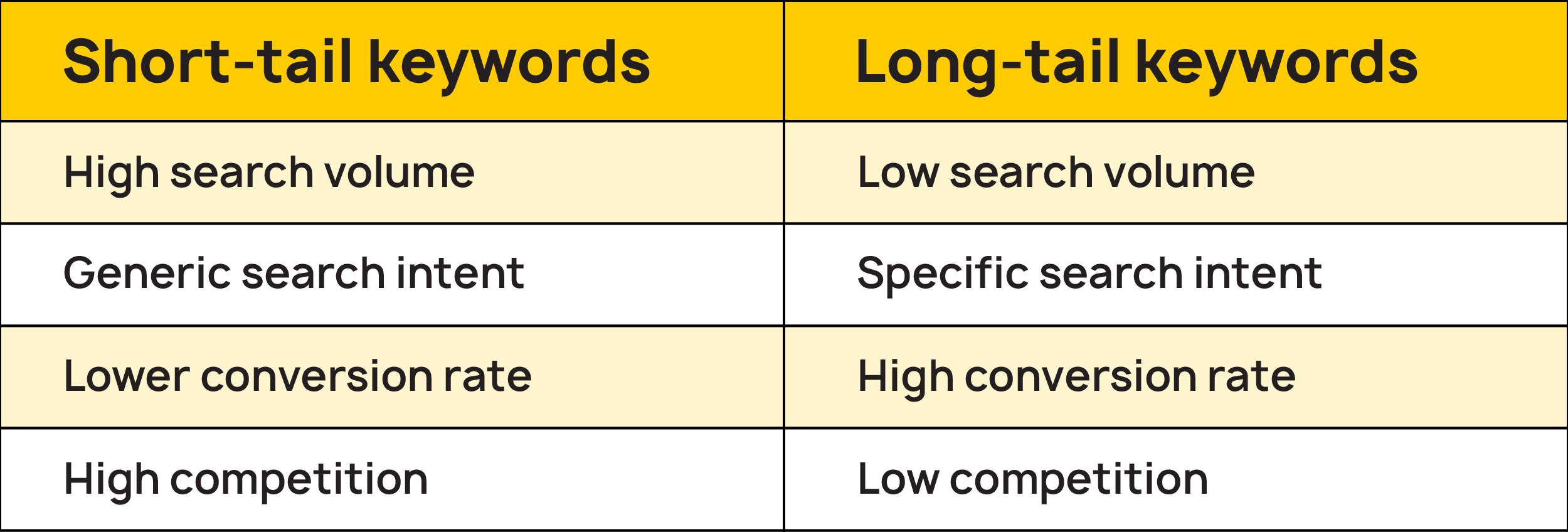
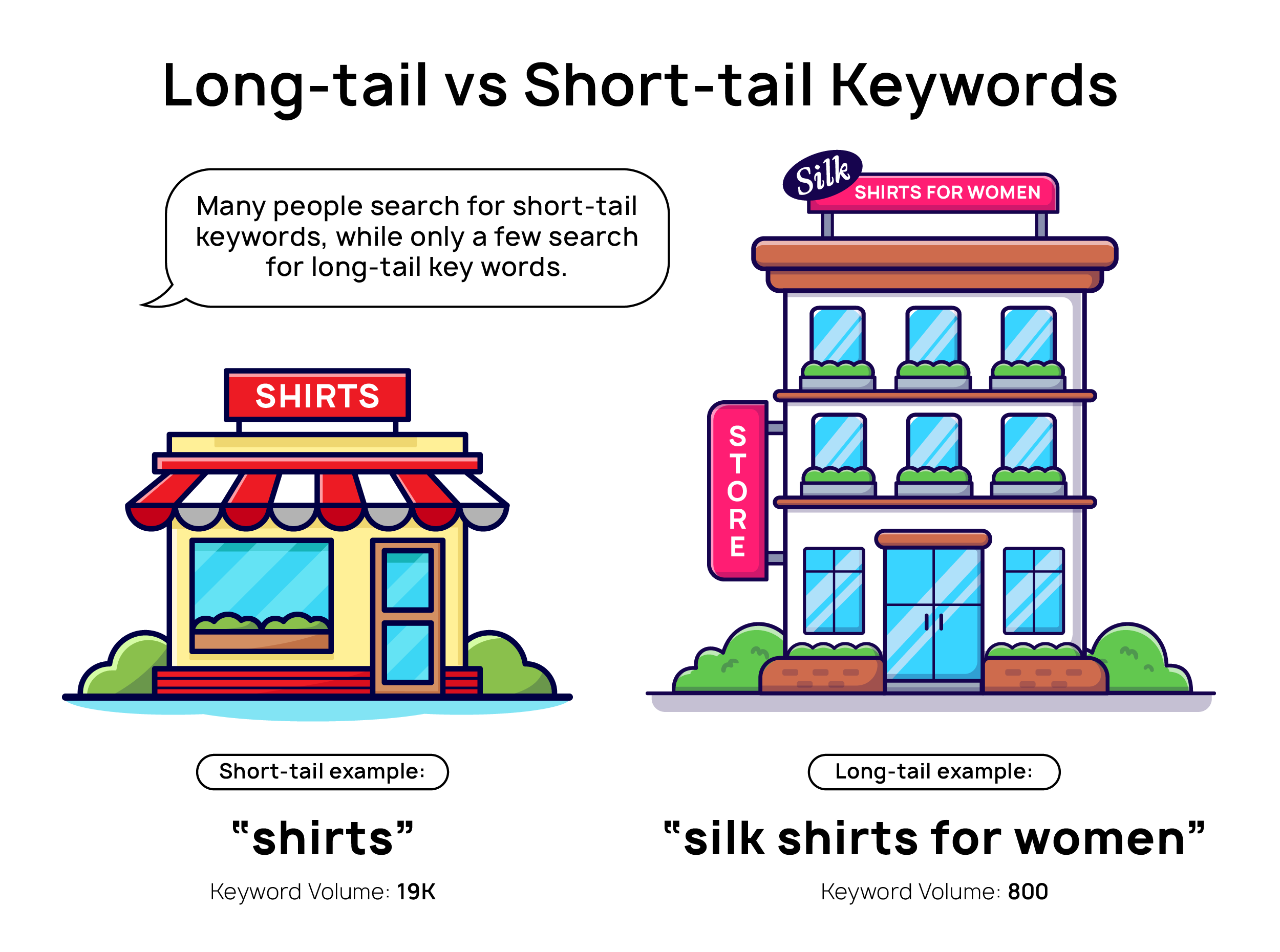
For instance, let’s take a look at one of the examples we explored earlier, ‘shirts’ and ‘silk shirts for women’. And let’s imagine you run an e-commerce website that sells different types of shirts. You might think you want your website to rank for the term ‘shirts’, but take a look at the below:
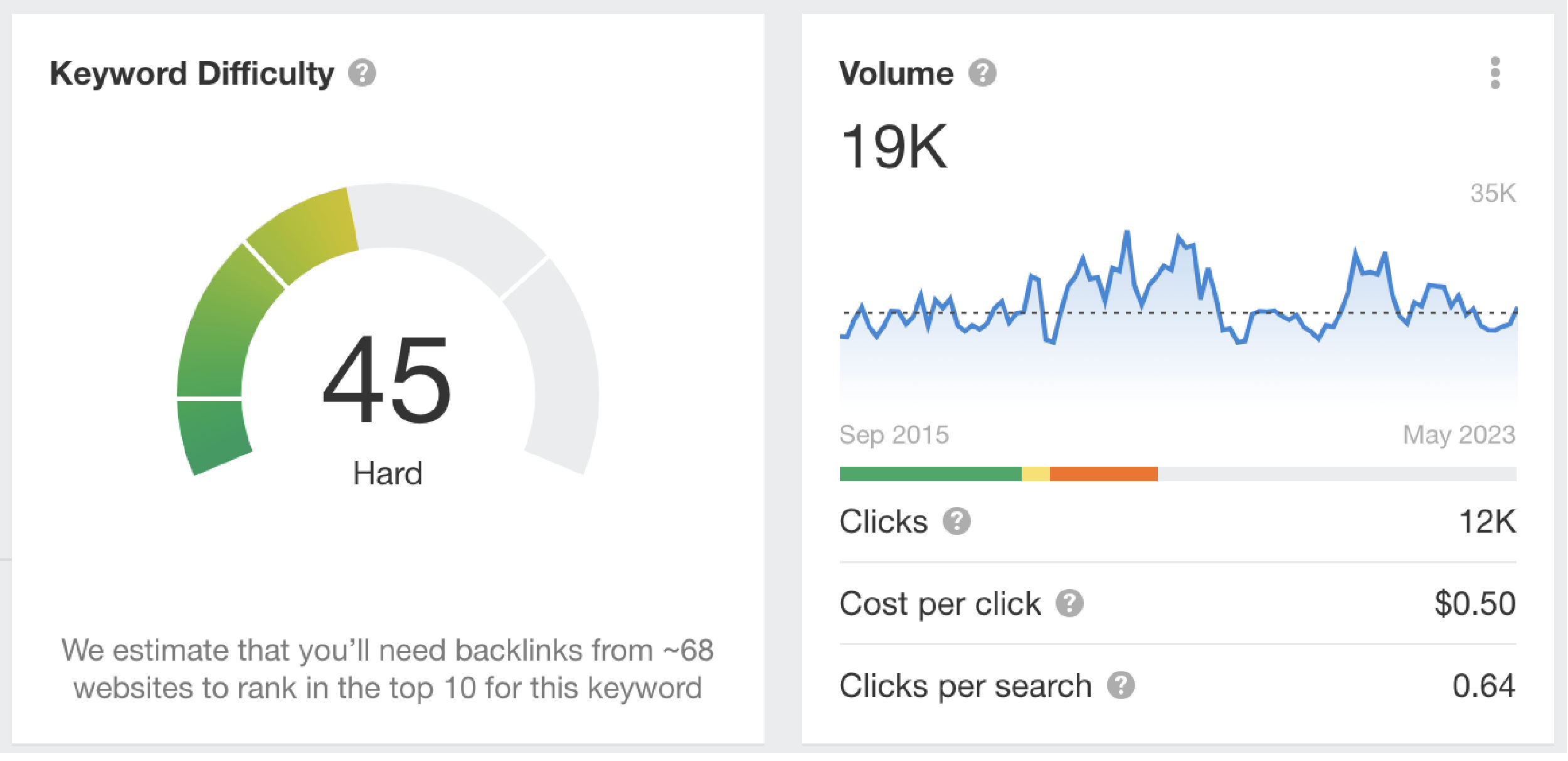
19,000 monthly searches sounds great! But that, in turn, makes the chances of your website being shown for that term incredibly slim, as the keyword difficulty is so hard.
If you’re able to fill your page content with long-tail keywords, like ‘silk shirts for women’, you’re much more likely to rank higher, as the competition and difficulty is so much lower:
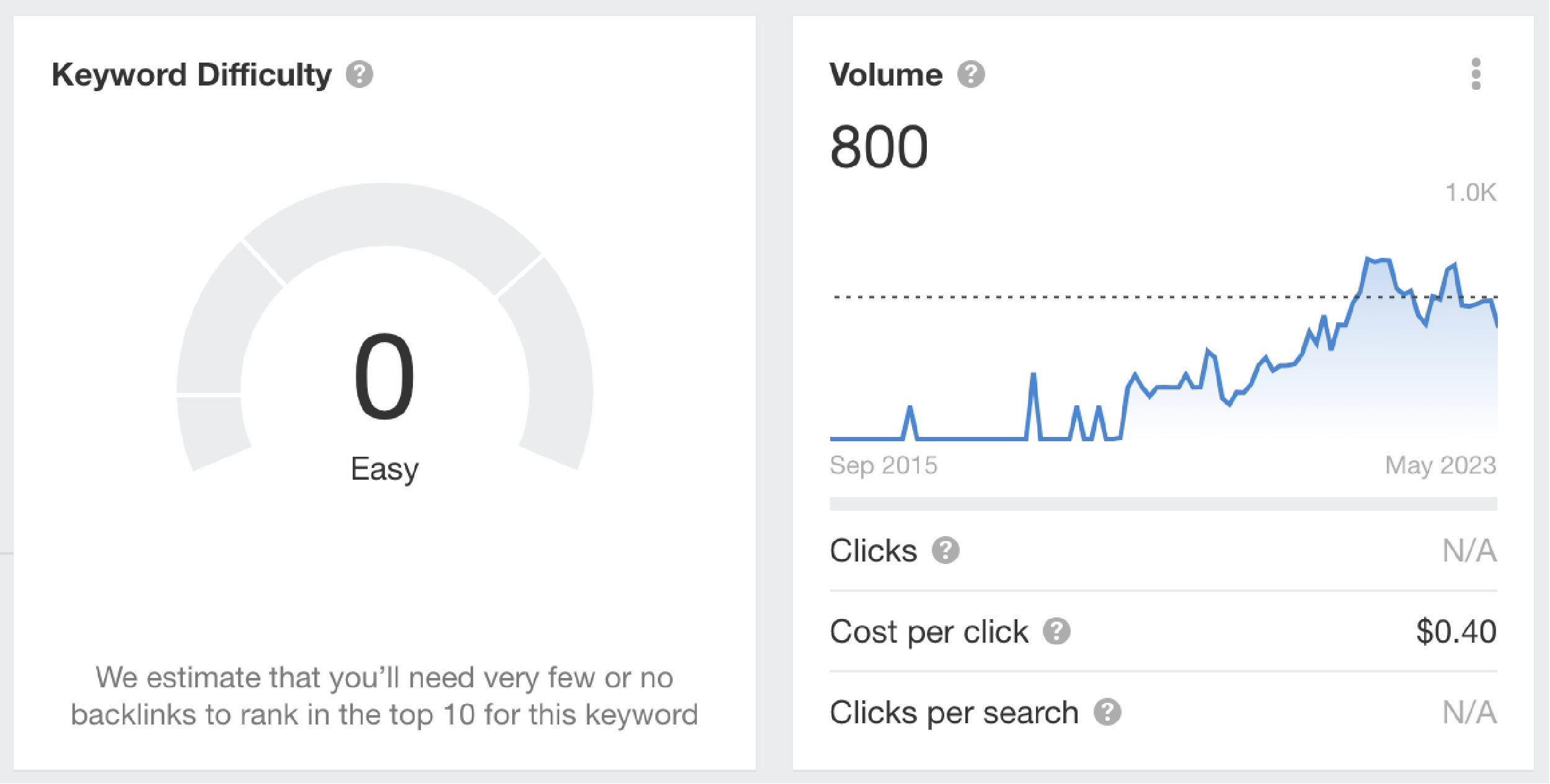
A pro-tip from the Milk & Tweed SEO experts on getting long-tail keywords into your website copy: include FAQs on your service or product pages. Just take a look at the monthly volumes and Keyword Difficulty (KD) of these long-tail keywords, and you’ll get an idea of how this can improve your ranking:
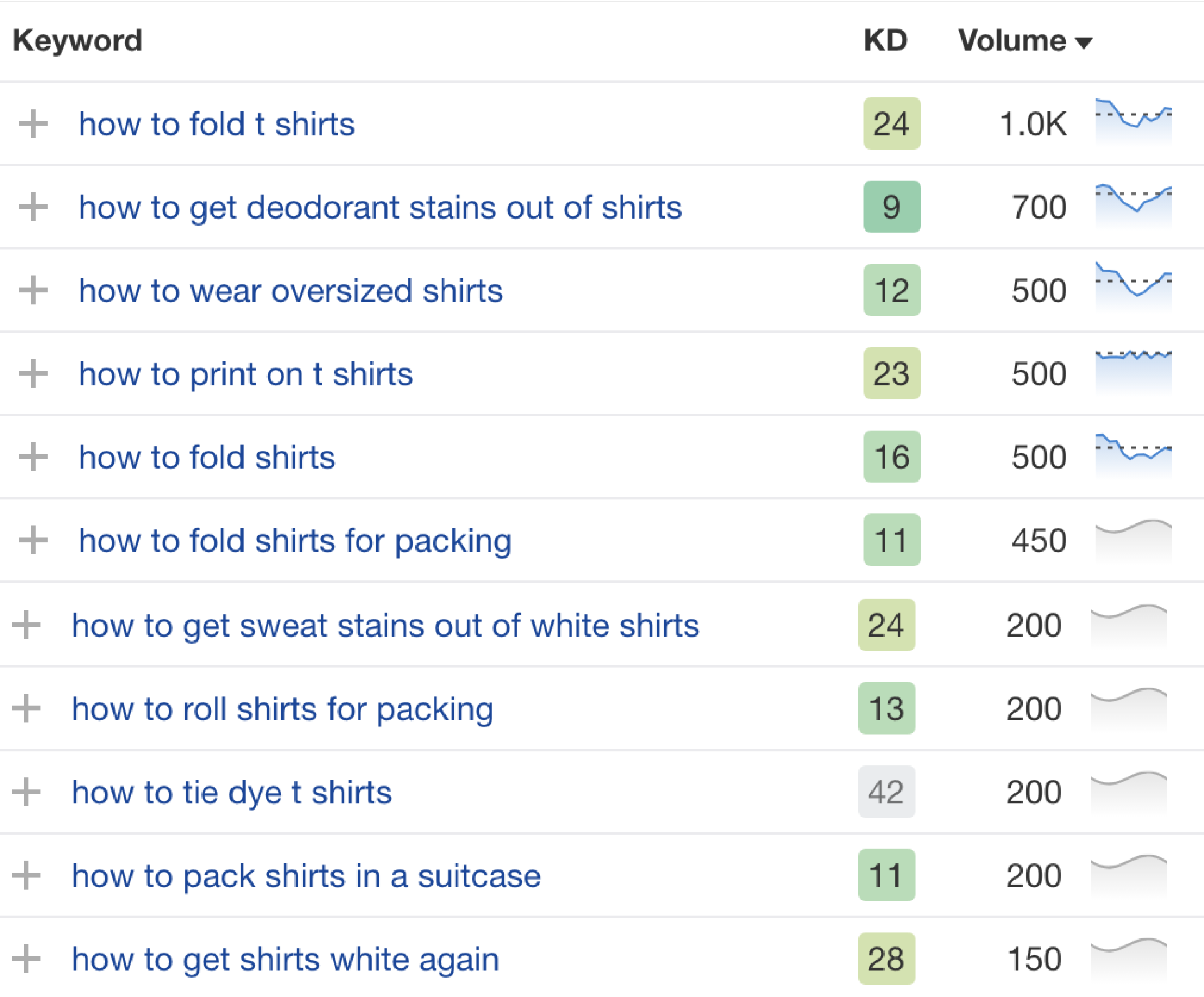
If you can include a list of FAQs on your pages, you can easily fill your web page with long-tail keywords to improve your ranking and help search engines better understand what your page is selling!
How to know which long-tail keywords to target
Now we’ve identified that long-tail keywords can be a great place to start when writing website copy, the next question is how do you find them? Here at Milk & Tweed, we use a tool called AHRefs (that’s what you’ve seen in the screenshots through this article), but unfortunately that’s not a free tool, and we’re all about making things accessible here. So don’t worry, we’ve got a whole heap of ways you can find long-tail keywords that work for your business.
You can start by setting up a free account with Google Adwords, and using their Keyword Planner to “Search for words or phrases related to your products or services. Our keyword research tool will help you find the keywords that are most relevant for your business”
Another favourite is AlsoAsked, where you can pop in your keyword (whether that’s ‘shirts’, ‘pizza’ or ‘phones’!) and get a nice long list of questions people have asked the internet.
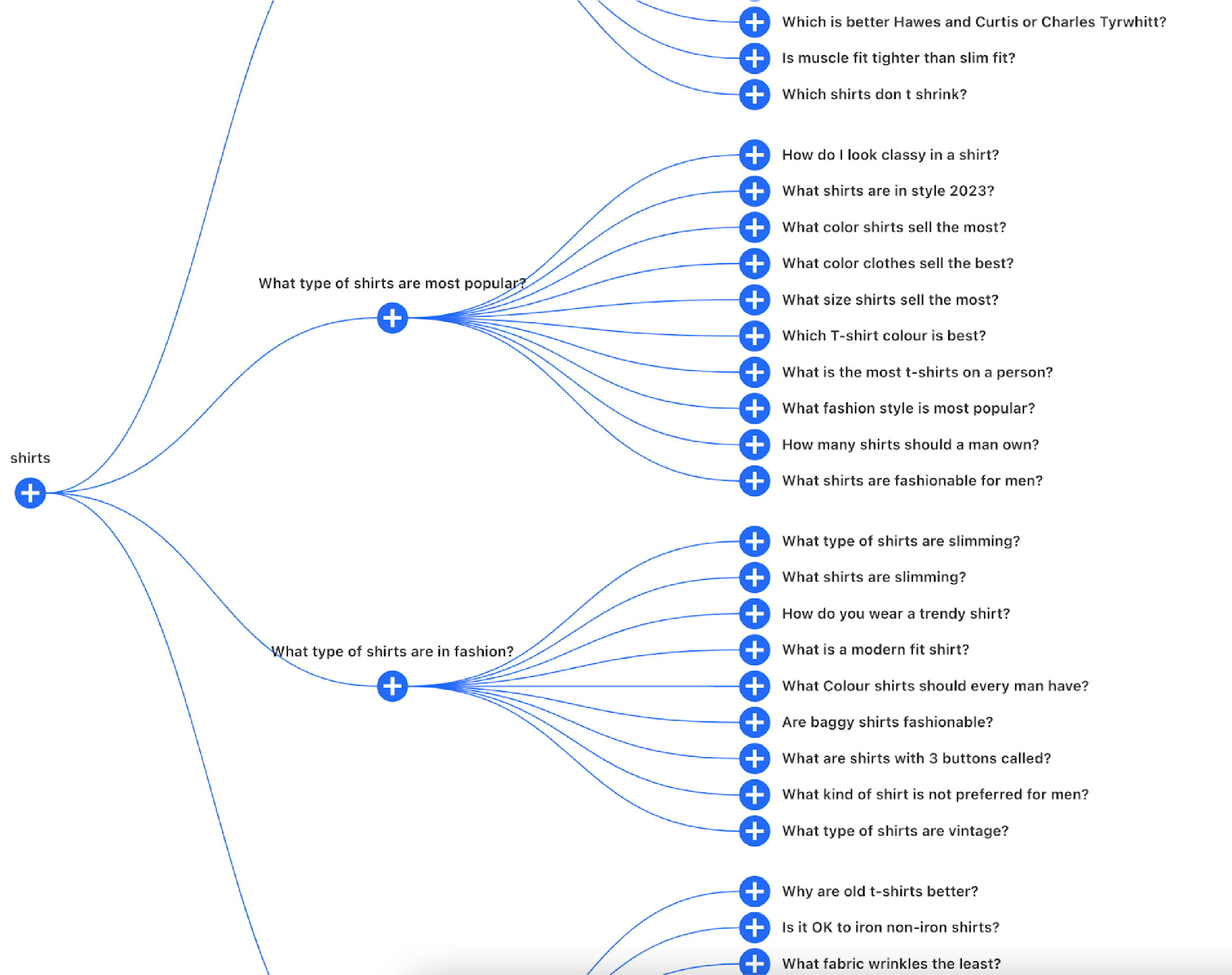
AnswerThePublic is a similar tool, but allows you to get a bit more granular by choosing location by country and language, and provides a bit more info on search volumes and CPCs (Cost Per Click):
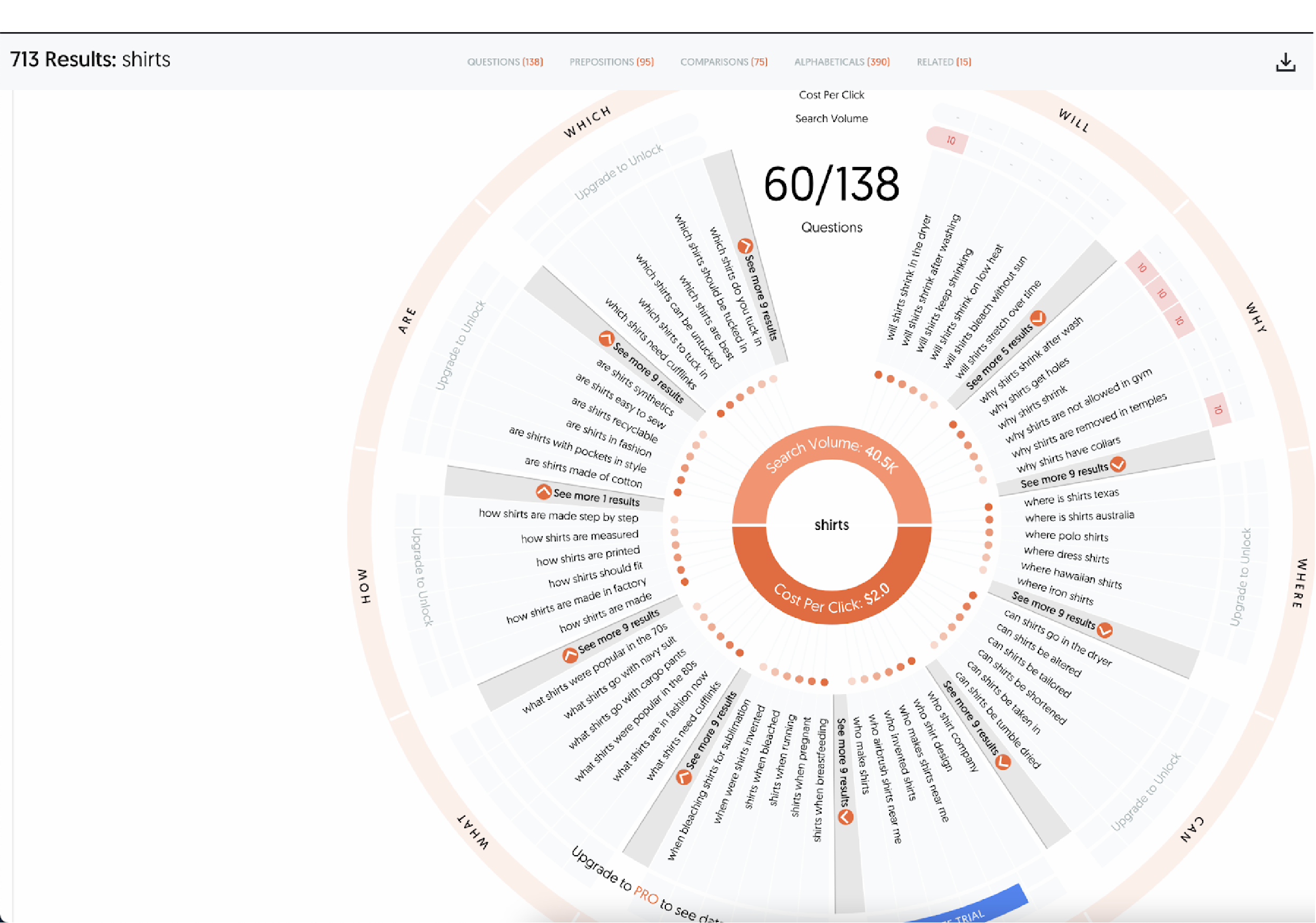
You can even use Google Trends to find related queries and build on short-tail keywords that way!
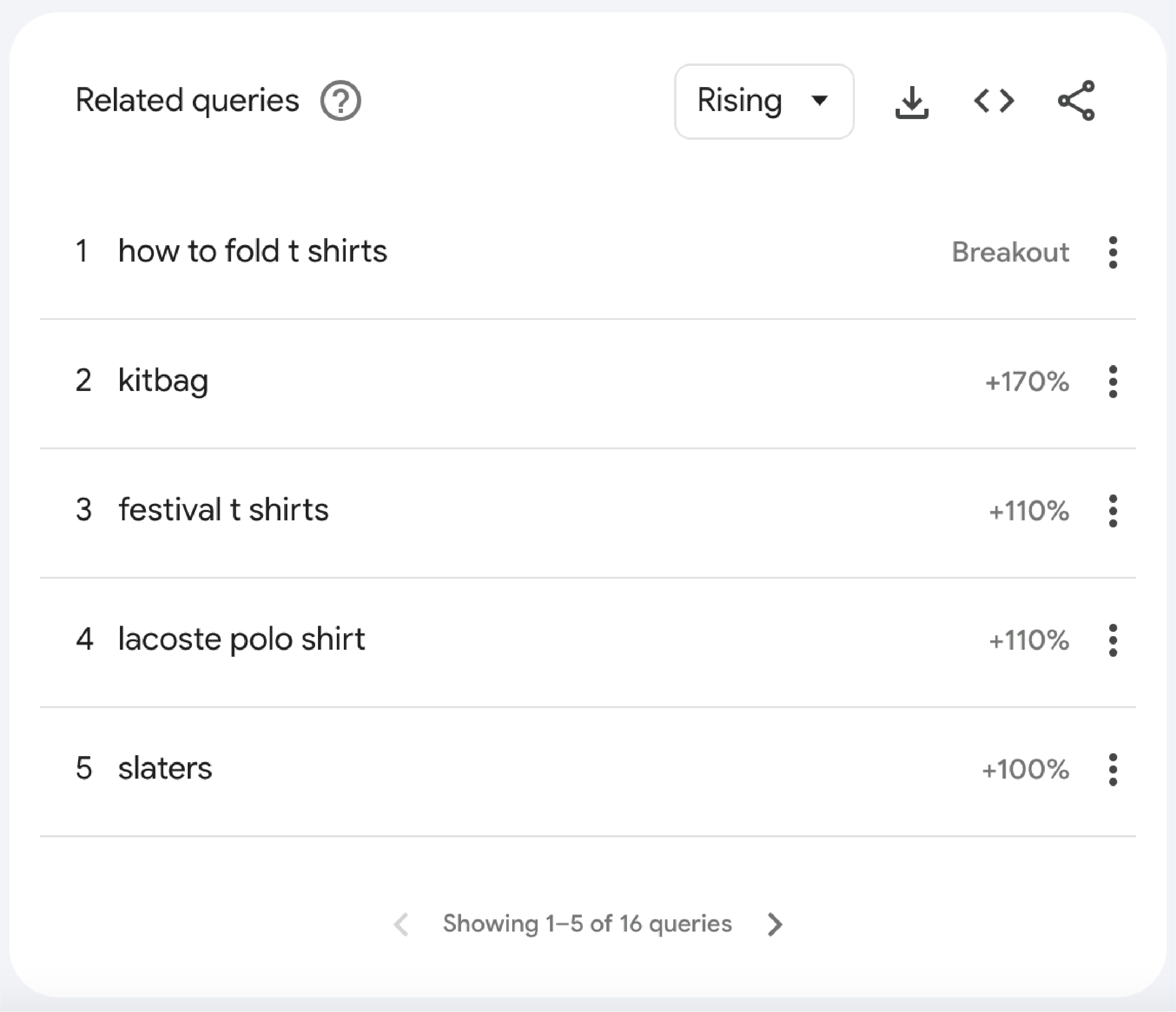
So what’s better, long-tail or short-tail keywords?
It may sound like it, but we’re not bashing short-tail keywords. Both long-tail and short-tail keywords have their benefits, and their disadvantages. Short-tail keywords have a high search volume, and therefore lots of competition, but that doesn’t mean it’s impossible to get in that top-10 position. It could mean a few years of optimising content (yes we said years!) and adding backlinks, but once you find yourself in that top stop, you’ll see the benefits.
You will see an increase in traffic from these short tail keywords, and you’ll likely grab some great backlinks from people linking to your content too!
And when it comes to the benefits of long-tail keywords, we’ve said it before and we’ll say it again:
- They’re easier to rank for because they’re less competitive
- There’s an endless amount of long-tail keywords you can rank for
- They tend to be more specific, which means you’re usually more likely to convert a visitor clicking through from one
However! That doesn’t make them perfect. You’ll need a lot of long-tail keywords to get the search volumes you need to get visitors finding your site. And super-niche long-tail keywords will have such a low search volume that they’re probably not worth going after anyway.
What’s the solution?
Well, our advice is to include a mix of those top level short-tail keywords with a good amount of specific long-tail keywords (remember, FAQs are a great place to add these!) if you want to get your page ranking up.
Alternatively, you can get in touch with the amazing Digital Marketers and SEO-experts we have here at Milk & Tweed. Up to you (but we know what we’d do!)

